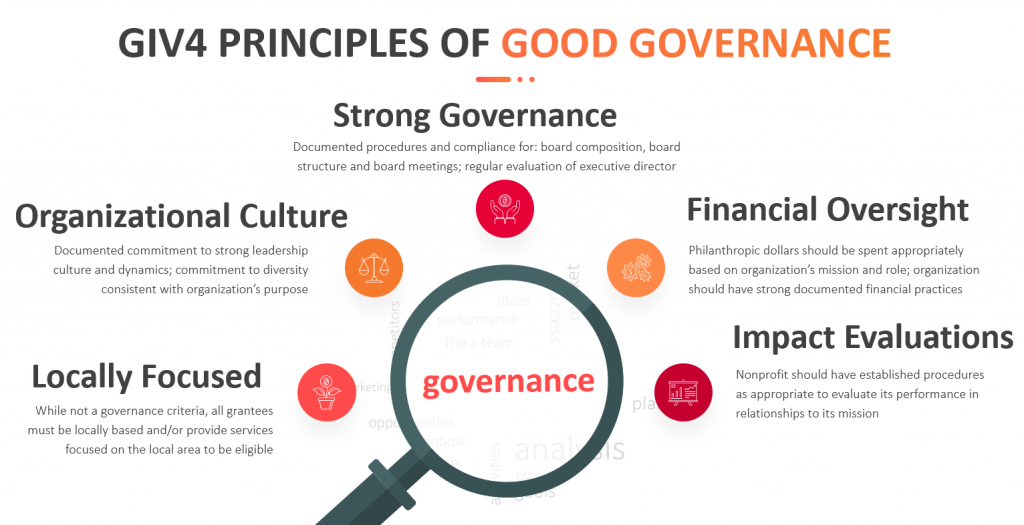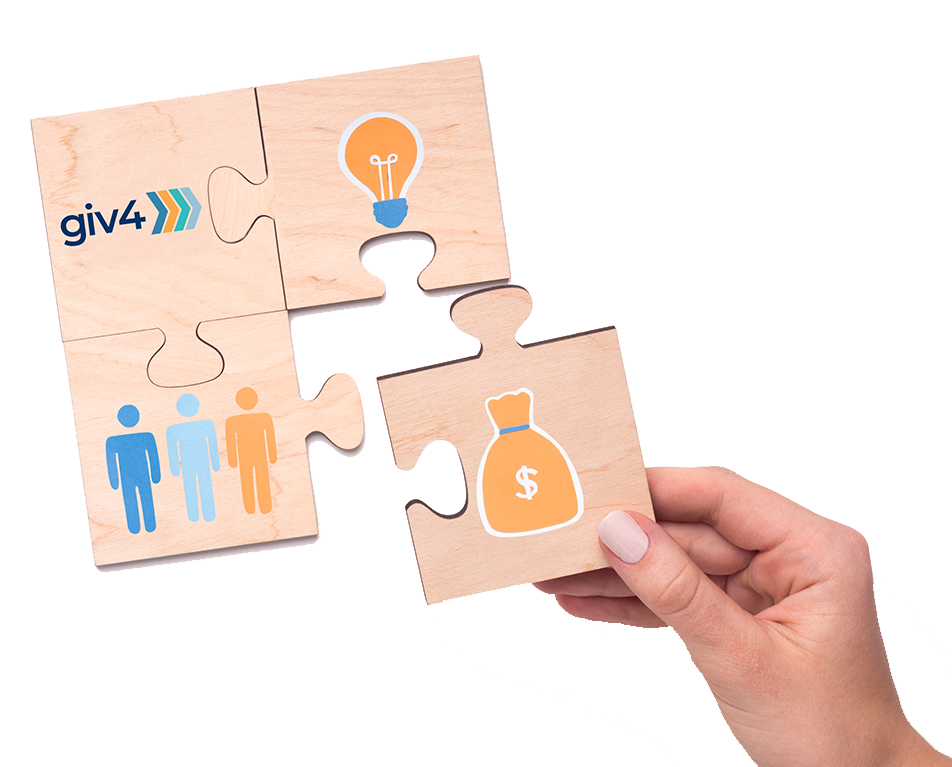Summary
There are two goals for Giv4 funds:
Simplify impactful giving to tackle homelessness; and,
Help donors develop a better understanding of the issues surrounding homelessness.
Our giv4 homelessness fund is a curated group of 12 non-profits, working on three specific aspects of homelessness: Prevention, Intervention and Policy/Systems Change.
This fund was curated in partnership with homelessness experts Funders Together to End Homelessness in San Diego, the Lucky Duck Foundation, and individuals with lived experience of homelessness. To ensure they are well-run and in line with regional government homelessness principles, all organizations must meet:
- giv4’s Good Governance Principles;
- The Guiding Principles on Addressing Homelessness adopted by the San Diego County Board of Supervisors;
- Additional criteria (described below) within the Prevention, Intervention and Policy/Systems Change categories below;
- IRS requirements to be a 501(c)(3) non-profit organization in good standing.
giv4 is an initiative of the Jewish Community Foundation of San Diego. Historically the largest grant maker in San Diego, JCF is committed as part of its mission to advance a sustainable, just, and vibrant society in San Diego. For more information about JCF, click here.
General Requirements
1. Good Governance
All non-profits receiving funding must certify compliance with Giv4’s Good Governance principles that encompass strong: (1) organizational culture; (2) financial oversight; (3) governance; (4) local focus; and, (5) performance evaluation procedures.

2. Best Practices on Homelessness
The Giv4 Homelessness Fund was curated in accordance with the Guiding Principles on Addressing Homelessness adopted by the San Diego County Board of Supervisors on April 6, 2021. That means non-profits funded should, as appropriate to their services and programs, work towards:
- Ensuring racial and social equity in all aspects of homelessness prevention and response.
- Committing to a Housing First approach.
- Providing culturally and linguistically appropriate services.
- Creating a person-centered system that emphasizes trauma-informed care and provides low-barrier access to available services to individuals.
- Increasing access to affordable and appropriate housing, including housing necessary for resolving behavioral or physical health conditions.
- Creating sustainable programs with long-term funding.
- Avoiding and eliminating policies and practices that criminalize homelessness.
- Moving away from outreach by law enforcement, focusing instead on programs that emphasize and consolidate outreach efforts to offer services, and public safety diversion, to avoid cycles of incarceration.
- Committing to evidence-based, data-driven solutions that encourage residents in need to utilize available supportive services.
- Maximizing social service interactions to prevent homelessness.
Category-Specific Process
Category 1: Policy/Systems Change Nonprofits
The four non-profits selected as Policy/Systems Change organizations are based on the evaluations of Funders Together to End Homelessness in San Diego, a group of major funders invested in an evidence-based Housing First model, aligned with national best practices to end homelessness. The organizations selected must be recent FTEH grantees, provide services and/or programs that are client-focused (i.e. providing solutions to those who are homeless, not to other institutions or organizations), and must offer innovative, policy, or systems change solutions. For example, this could include a new non-profit looking to tackle homeless in a novel way, or an established non-profit creating new processes or approaches to provide additional benefits to clients. Nonprofits may engage in advocacy work for policy change so long as they do not violate IRS rules governing 501(c)(3) organizations regarding lobbying.
Category 2: Intervention
The four non-profits selected as Intervention or Immediate Action grantees are based on the grant selection process of the Lucky Duck Foundation (LDF). Organizations selected must be recent LDF grantees, must primarily provide services to individuals experiencing homelessness and must participate in HUD’s Continuum of Care (CoC) Program.
Category 3: Prevention
The goal of Prevention is to stop homelessness before it begins. There are many different structural, individual/relational and systemic factors that cause people to experience homelessness - from poverty to unemployment, from lack of affordable housing to illness, from interpersonal violence to discrimination. This means prevention is a broad category, without one universal, easily quantifiable measurement. Therefore, the Prevention category of the giv4 homelessness fund, while subjective, is an opportunity to highlight organizations providing diverse prevention solutions in San Diego County.
Conflict of Interest Disclosures:
- Members of the HEAL Network were among the individuals with lived experience of homelessness consulted in the curation of this fund. The HEAL Network (via the San Diego Housing Federation) is a grantee of the fund; however, HEAL took no part in the discussions relating to its application to be a grantee.
- Grantee YIGBY is fiscally sponsored by the non-profit organization Catalyst of San Diego & Imperial Counties. Funders Together to End Homelessness San Diego is a program of Catalyst, but with grantmaking decisions made independent of Catalyst.
We collaborated with the Lucky Duck Foundation, Funders Together to End Homelessness and people with lived experience of homelessness to curate the fund. Learn more about the fund curation process here.
If you have more questions about how giv4 works, check out our FAQs or email [email protected] with your questions.
Ready to join us in working to overcome homelessness together? Click here to get started.
